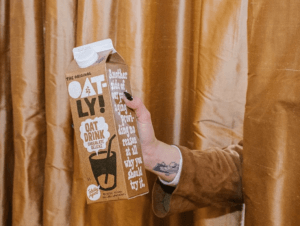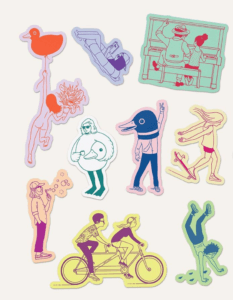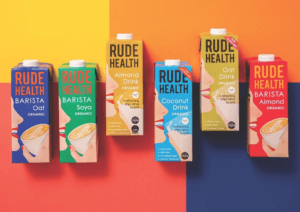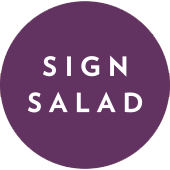Our Thoughts
Plant Milk’s Playful Rebellion Enjoy changing the world one glass at a time
Milk is one of the most classic, unwavering household commodities available. It is frequently employed as a symbol of purity, innocence, health, and family life, and its price as a shorthand for understanding everyday life. Yet with the increasing popularity of plant-based diets for health, sustainability, and ethical reasons, the classic cow’s milk is giving way to an ever-increasing variety of plant-based milks. In the process, the way milk-style drinks are understood has become an open debate as these alternative brands come up with creative new packaging and comms. The use of alternative spellings such as “mylk” and “m*lk” is one example of how the way dairy-style products are understood can be re-framed to incorporate multiple styles, sources, tastes, and uses. To do this, many brands are making a clear break from the image of traditional milk as pure and wholesome, instead embracing a sense of playful rebelliousness, freedom and counterculture to convey positive sensory enjoyment of the product alongside the broader environmental benefits of changing food habits.
Oatly is a well-known example of playfully breaking free from the status quo, using self-deprecating humour, references to the “post-milk generation,” and outdoor advertising unusual for dairy, including posters recalling bills posted for concerts, graffiti-style drawings, and food trucks. Likewise the pack design features a mix of digital and hand-drawn font and illustration styles, paired with a grainy finish and collage-style layout reminiscent of photocopied, handmade zines and low-budget flyers connoting a punk, anti-establishment approach to the food industry and a willingness to operate outside social norms. At the same time, the use of bubble-style hand-drawn fonts, light pastel colours, and irreverent imagery and in social media comms communicates approachability, encouraging consumers to join in their mission to change the world, but to have a good time doing it.

Likewise Minor Figures oat milk uses simple line-drawing illustrations and pared back colour palettes with a single bright colour on white or pale backgrounds, communicating a sense of ease, simplicity, and light-heartedness. The imagery also conveys a feeling of breaking free from convention and expectations in a mindful way, as these illustrations of adult figures engaged in childlike play – skateboarding, blowing bubbles, dressing up in costumes – step out of “adulting” and find space to play freely. In comms as well, Minor Figures current campaign, discussing acidity in coffee and the role of oat milk, directly references 1960s counterculture and the use of psychedelics with the tagline “high on acids,” and brightly coloured, tie-dye style colourways. In doing so the brand suggests that broadening the horizons of plant milks can be, in its own way, a revolutionary act.

Other brands such as Rebel Mylk and Rude Health state directly through their names the idea of breaking the conventional rules of food and ideas of health. However, each communicates a sense of friendly positivity, balancing out the potential aggressive connotations of rebelliousness and rudeness. Rebel Mylk uses hearts, angel wings, and soft hand-illustrated style font to connote a softness and communicate that their rebellious spirit is intended with positive results. Likewise to be “rude” is often to ignore social conventions and relationships. Yet Rude Health features bright, colourful, but simple illustrations of smiling faces which connote the opposite of “rude” behaviour, instead suggesting friendliness and openness. In this case “rude”ness means enjoying good health and being free from constraining rules. Both brands use their combined rebelliousness and playful spirits to suggest that breaking the rules of milk is rebellion with a cause, and uplifting for all.

Underlying all these brands is a sense that breaking free from the food status quo can bring positive change to individuals and to the world as a whole. But plant milk brands have understood that encouraging positive social and environmental change can be enjoyable, inclusive, and should fit into consumers’ everyday lives. Thanks to the proliferation of plant milks, being rebellious and calling for change is also an act of wellness, pleasure, and play we can take part in through small acts every day.

